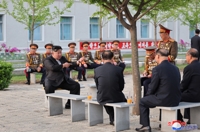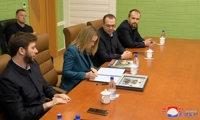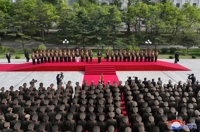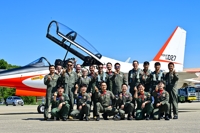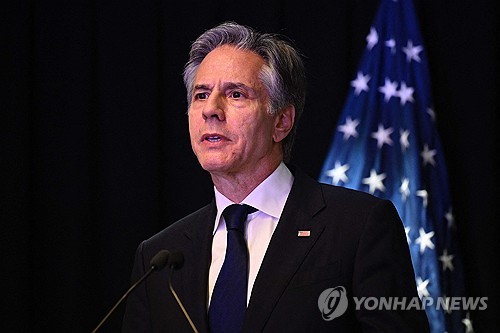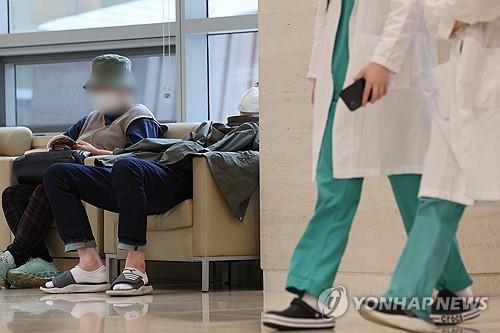(LEAD) (Yonhap Interview) Denuclearizing N. Korea is 'not unattainable,' dialogue efforts should go on: minister
(ATTN: UPDATES throughout with more details)
By Kim Soo-yeon and Yi Wonju
SEOUL, Nov. 17 (Yonhap) -- South Korea's unification minister emphasized the need to continue efforts to coax North Korea into abandoning its nuclear weapons, a goal which is "not unattainable."
In a joint interview with Yonhap News Agency and Yonhap News TV on Wednesday, Kwon Young-se described sanctions, pressure and extended deterrence as means to bring Pyongyang to denuclearization talks.
"We don't need to regard the goal of North Korea's denuclearization as having run its course, even though the North legalized the use of nuclear force or stated its resolve to seek a nuclear arsenal," Kwon said. "The goal of denuclearizing North Korea is not unattainable."
He added, "We need to make efforts for North Korea's denuclearization through extended deterrence, sanctions and pressure. These cannot denuclearize the North per se, but they are a means to bring the North to the denuclearization (dialogue) table."

Unification Minister Kwon Young-se, South Korea's point man for inter-Korean relations, speaks during an interview with Yonhap News Agency at the government complex in Seoul on Nov. 16, 2022. (Yonhap)
Extended deterrence means the United States' commitment to using the full range of its military capabilities, including nuclear options, to defend its allies.
Refusing to talk with South Korea and the U.S. for years, the North has ramped up its missile tests at an unprecedented pace this year amid speculation that it may soon conduct what would be the seventh nuclear test.
Kwon said, however, the Kim Jong-un regime appears to have completed its preparations for a nuclear experiment but it may not be imminent.
For now, he said, there might be "no urgent demand" for the North to conduct a nuclear test, adding it remains to be seen whether China's National People's Congress set for March 2023 could be affecting the North's decision to go ahead with the test.
Especially, he added, the North seems to have already achieved "political effects" to some extent through the legalization of nuclear weapons use in September.
Kwon reaffirmed South Korea is not considering pushing for its own nuclear armament or reintroducing U.S. tactical nuclear weapons to the peninsula.
"But if inter-Korean relations continue to get worse and tensions keep rising, (the government) cannot ignore (such a call) indefinitely in case public opinions tilt toward (supporting) the South's nuclear armament in a broad meaning such as our nuclear armament, nuclear sharing or the deployment of (American) tactical nuclear weapons," he said.
South Korea has been free of nuclear weapons since the U.S. withdrew tactical nuclear weapons from the Korean Peninsula in the early 1990s under a disarmament deal with the Soviet Union.
Regarding the North's violation of the inter-Korean agreement signed in Sept. 19, 2018, to reduce border tensions, the minister raised the need to press and persuade the North to honor it. The minister, a longtime politician, pointed out that his government will have to take public opinions at home into account as well.
"The government is deeply thinking about the possibility that public opinions could grow in a way that we cannot accept the 2018 inter-Korean accord if the North raises tensions," he said.
Despite heightened tensions, the unification ministry in charge of inter-Korean affairs remains "open" to providing humanitarian assistance to the North, ranging from cooperation for the COVID-19 pandemic to food aid, Kwon said.
"North Korea appears to deny access by international organizations and non-government agencies due to the pandemic. If situations change, we are open to providing humanitarian aid directly or through cooperation with international organizations," he said.
The minister said the South will proactively support efforts to resume inter-Korean sports exchange on the occasion of international sports events, including the Asian weightlifting competition to be held in May next year in Jinju, 284 kilometers south of Seoul.

This photo, taken Nov. 16, 2022, shows Unification Minister Kwon Young-se, South Korea's point man for inter-Korean relations, speaking during an interview with Yonhap News Agency. (Yonhap)
Kwon said the government is working on details of political and military measures that can be taken in response to North Korea's denuclearization steps under its "audacious" plan.
In August, President Yoon Suk-yeol publicly proposed an "audacious" initiative to North Korea, promising to offer economic incentives in return for Pyongyang's commitment to denuclearization. The North has rejected the proposal as "absurd," vowing not to trade its nuclear arsenal for economic aid.
As examples of the government's political and military steps to be considered, Kwon cited the South's support of the North's eventual establishment of diplomatic ties with the U.S. and efforts to create a peace regime.
In his message to the North's leader, the minister, who served as Seoul's ambassador to Beijing, said provocations will only deepen its isolation and aggravate the suffering of North Koreans.
"I'd like to tell (the North) to start dialogue and say it can accelerate the prosperity of the North if it cooperates with us," he said.
sooyeon@yna.co.kr
julesyi@yna.co.kr
(END)
-
 'Queen of Tears' weaves rich tapestry of Korean contemporary art
'Queen of Tears' weaves rich tapestry of Korean contemporary art -
 Ateez member Yunho throws first pitch at MLB match between Dodgers, Mets
Ateez member Yunho throws first pitch at MLB match between Dodgers, Mets -
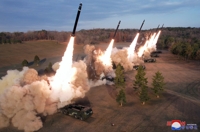 N. Korea says Kim guided simulated nuclear counterattack drills for 1st time
N. Korea says Kim guided simulated nuclear counterattack drills for 1st time -
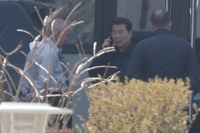 N. Korea calls envisioned U.S. aid to Ukraine 'hallucinogen'
N. Korea calls envisioned U.S. aid to Ukraine 'hallucinogen' -
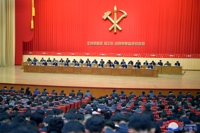 N. Korea calls on party propaganda officials to work harder
N. Korea calls on party propaganda officials to work harder
-
 'Queen of Tears' weaves rich tapestry of Korean contemporary art
'Queen of Tears' weaves rich tapestry of Korean contemporary art -
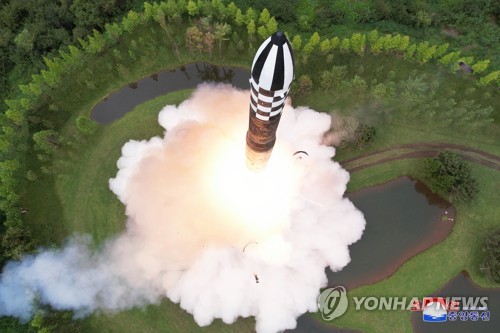 Experts see possibility of N.K. conducting nuclear test before U.S. presidential vote
Experts see possibility of N.K. conducting nuclear test before U.S. presidential vote -
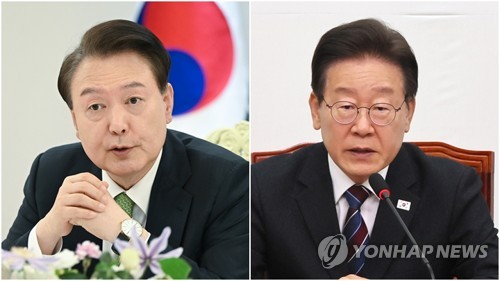 Details of meeting between Yoon, opposition leader undecided: presidential office
Details of meeting between Yoon, opposition leader undecided: presidential office -
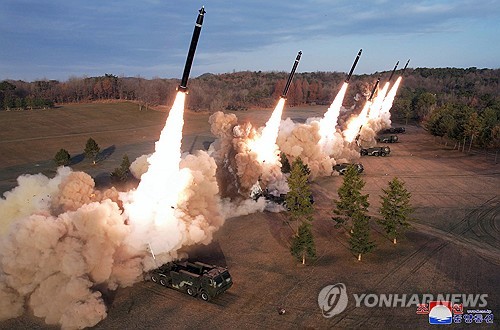 N. Korea says Kim guided simulated nuclear counterattack drills for 1st time
N. Korea says Kim guided simulated nuclear counterattack drills for 1st time -
 Looming weekly closure of major hospitals feared to worsen medical service crisis
Looming weekly closure of major hospitals feared to worsen medical service crisis
-
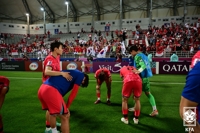 S. Korea eliminated in Olympic football qualifiers as poor defense, undisciplined play prove costly
S. Korea eliminated in Olympic football qualifiers as poor defense, undisciplined play prove costly -
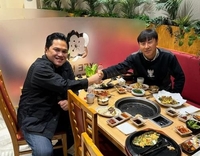 Indonesia coach left with mixed feelings after eliminating native S. Korea in Olympic football qualifiers
Indonesia coach left with mixed feelings after eliminating native S. Korea in Olympic football qualifiers -
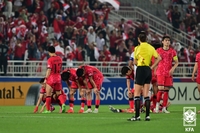 (LEAD) 10-man S. Korea lose to Indonesia to miss out on Paris Olympic football qualification
(LEAD) 10-man S. Korea lose to Indonesia to miss out on Paris Olympic football qualification -
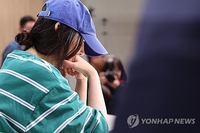 ADOR CEO calls conflict with Hybe 'worst experience of my life'
ADOR CEO calls conflict with Hybe 'worst experience of my life' -
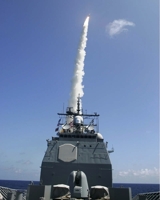 S. Korea to acquire SM-3 shipborne missiles by 2030
S. Korea to acquire SM-3 shipborne missiles by 2030
















